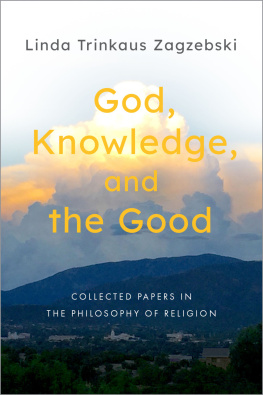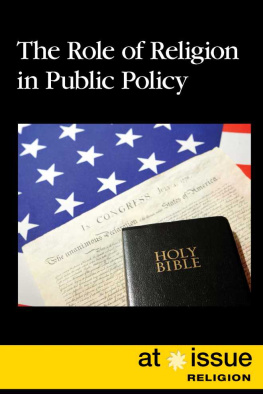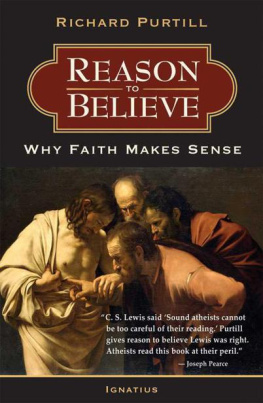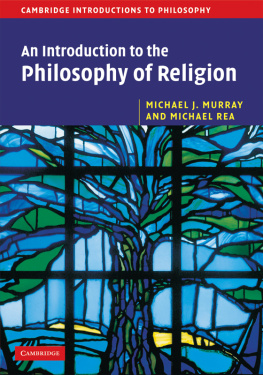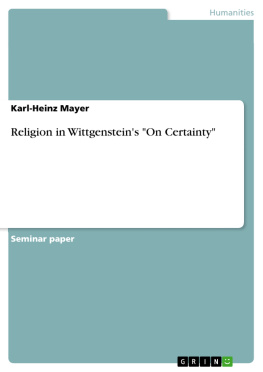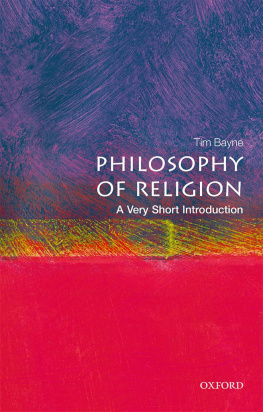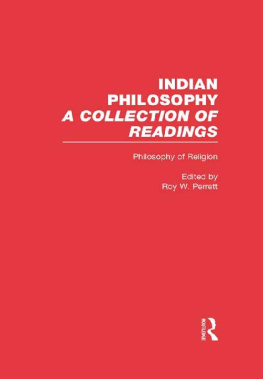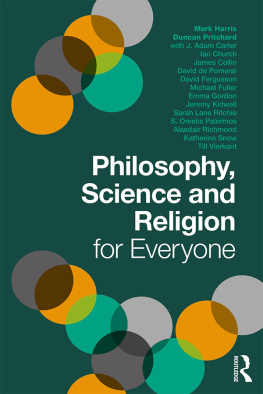God, Knowledge, and the Good

Oxford University Press is a department of the University of Oxford. It furthers the Universitys objective of excellence in research, scholarship, and education by publishing worldwide. Oxford is a registered trade mark of Oxford University Press in the UK and certain other countries.
Published in the United States of America by Oxford University Press
198 Madison Avenue, New York, NY 10016, United States of America.
Oxford University Press 2022
All rights reserved. No part of this publication may be reproduced, stored in a retrieval system, or transmitted, in any form or by any means, without the prior permission in writing of Oxford University Press, or as expressly permitted by law, by license, or under terms agreed with the appropriate reproduction rights organization. Inquiries concerning reproduction outside the scope of the above should be sent to the Rights Department, Oxford University Press, at the address above.
You must not circulate this work in any other form and you must impose this same condition on any acquirer.
Library of Congress Control Number: 2022902482
ISBN 9780197612385
eISBN 9780197612408
DOI: 10.1093/oso/9780197612385.001.0001
Dedicated to the memory of Marilyn McCord Adams
Contents
Coauthor Joshua Seachris
My life in philosophy of religion did not begin until after graduate school, when I joined the Society of Christian Philosophers and started writing papers and commentaries for meetings. My first major conference was an important philosophy of religion conference funded by the National Endowment for the Humanities (NEH) and organized by Robert Audi at the University of Nebraska in 1984. Most of the philosophers in the United States doing philosophy of religion at that time were in attendance, as well as a few like me who were just entering the field. Another highlight for me, as well as for many people in the field, was the Institute in Philosophy of Religion organized by William Alston and Alvin Plantinga in Bellingham, Washington, in 1987, also funded by the NEH. The 1980s and 1990s were vibrant decades. That period produced the first generation of publications and conferences that applied the distinctive knowledge and techniques of analytic philosophy to issues in philosophy of religion, some of which connected philosophy with Christian theology. I was blessed to have distinguished mentors and many friends in philosophy whose intellectual paths invigorated my own. I know that my thought and my life would have been much poorer without them.
The papers in this collection span thirty-five years. I have divided them into eight topical categories: (I) Foreknowledge and Fatalism; (II) The Problem of Evil; (III) Death, Hell, and Resurrection; (IV) God and Morality; (V) Omnisubjectivity; (VI) The Rationality of Religious Belief; (VII) Rational Religious Belief, Self-Trust, and Authority; and (VIII) God, Trinity, and the Metaphysics of Modality. There are eighteen papers in total, numbered as .
I. Foreknowledge and Fatalism
: Divine Foreknowledge and Human Free Will, originally published in Religious Studies, 21 (Fall 1985), 279298.
I have found this topic gripping since later childhood and I have never heard of a solution that is fully satisfying. This chapter was my first full-length journal article and the topic of my first book, The Dilemma of Freedom and Foreknowledge (Oxford University Press, 1991). The paper was written in the early 1980s when the problem of foreknowledge and free will was becoming one of the most hotly discussed topics in American philosophy of religion. In this paper I canvas the literature on the topic since Nelson Pike argued for the inconsistency of infallible divine foreknowledge and human free will in his landmark 1965 paper, Divine Omniscience and Voluntary Action. I defend the logical compatibility of infallible foreknowledge and free will, but I conclude that showing logical consistency is not sufficient for resolving the tension between them. For that, we need a broader theory in theological metaphysics that shows that divine foreknowledge and human freedom are mutually plausible. I still accept most of the arguments of that first paper and first book, but the range of options that I think are both viable and useful has been considerably narrowed, and I discuss that in the next two papers.
: Eternity and Fatalism, originally published in God, Eternity, and Time, edited by Christian Tapp and Edmund Runggaldier (Ashgate, 2011), 6580.
Both the past truth of propositions about the future and Gods past infallible knowledge of the future seem to lead to fatalism, and in both cases it is tempting to think that fatalism can be escaped by escaping time. If propositions are timelessly true, rather than true in the past, the logical fatalist argument apparently collapses. If Gods knowledge of our future is timeless rather than in the past, the theological fatalist argument apparently collapses. I argue that escaping fatalism by escaping time succeeds only if the timelessness move can overcome two hurdles: (1) There must be no temporal counterpart that permits a reformulation of the fatalist argument. The timeless truth of propositions cannot overcome this hurdle. The timeless knowledge of God can overcome this hurdle, but only if there are restrictions on the knowledge of Jesus Christ, who is incarnated in time. (2) There must be no reason to think that the timeless realm shares with the past the feature of being outside our control. I argue that the timelessness move does not overcome this hurdle for either argument. I extend an argument I first presented in The Dilemma of Freedom and Foreknowledge (, sec. 3.5) that there is a principle of the Necessity of Eternity that permits the formulation of a parallel timeless truth dilemma and a parallel timeless knowledge dilemma. I conclude that the escape from fatalism does not turn on the issue of temporality versus timelessness. There are many reasons why a Christian philosopher would be attracted to the traditional conception of divine timelessness, but the need to escape fatalism should not be one of them.
: Divine Foreknowledge and the Metaphysics of Time, originally published in God: Reason, and Reality, edited by Anselm Ramelow, in the Philosophia series: Basic Philosophical Concepts, Philosophia Verlag (Munich, 2014), 275302.
In this paper I argue that when we examine the traditional dilemma of infallible divine foreknowledge and human free will, we uncover a deeper dilemma that has nothing to do with God, infallibility, or free will. Many historically important ways out of theological fatalism are irrelevant to this problem, which arises within the metaphysics of time. The assumption that the past has a kind of necessity that the future lacks is inconsistent with the principle that temporal necessity is transferred over entailment and the possibility that a proposition about the past entails a proposition about the future. I argue that the most reasonable response to this dilemma is to reject the view that the necessity of the past is a purely temporal modality; in fact, it is not a form of necessity in the formal sense of necessity. Rather, I propose that it reduces to the metaphysical thesis that the past is causally closed. With this interpretation of the necessity of the past, the argument for theological fatalism must be revised in a way that reveals confusions in our notions of causality and the arrow of time. I conclude that well-known fatalist problems are interwoven with problems about time that are easier to see in the context of theism, but which would be there anyway. This problem shows us one of the ways in which philosophical theology has important implications for secular metaphysics.

